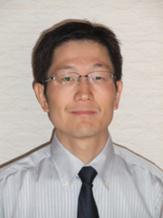


Biography: Dr. Hajime Hirao received his BEng and MEng degrees from Kyoto University and his PhD from The University of Tokyo. He underwent his postdoc training at The Hebrew University of Jerusalem, Emory University, and Kyoto University. Prior to that, he worked for three years on computer-assisted drug design at the Novartis institute in Japan. Before joining City University of Hong Kong, he worked as faculty at Nanyang Technological University. Over the years, he has been interested in computational and theoretical aspects of chemistry, especially chemical reactions. One of the major goals of his research is to figure out how difficult chemical transformations can be achieved using simple catalytic platforms built from earth-abundant elements.
Dr. Hirao’s research applies quantum chemistry, multiscale models, and many other computational chemistry techniques to a variety of complex molecular systems of practical importance such as transition-metal catalysts, metalloenzymes, drugs/drug targets, porous materials, and nanomaterials. Using computational approaches and often with experimental collaborators, his group seeks to derive key insights into chemical reaction mechanisms and bonding patterns of complex molecules, with the ultimate aim of designing new functional molecules and materials. He is also interested in developing new concepts and computational methods that may enhance our understanding of chemistry or improve the efficiency of computational analyses.
Speech Title: Computational Exploration of Porous Coordination Polymers and Other Materials
Abstract: The physical principles used in computational chemistry underlie all branches of chemistry; as such, computational chemistry has unlimited potential to contribute to the advancement of fundamental chemistry in every different subdiscipline as well as to finding solutions to critical challenges that humankind faces today. With this in mind, our computational exploration of chemistry applies quantum chemistry, multiscale QM/MM and and many other advanced computational chemistry techniques to porous coordination polymers (PCPs, or metal-organic frameworks, MOFs) and nanomaterials. In particular, using computational approaches and often with experimental collaborators, we seek to derive information about chemical reaction mechanisms and bonding patterns of these complex molecules.